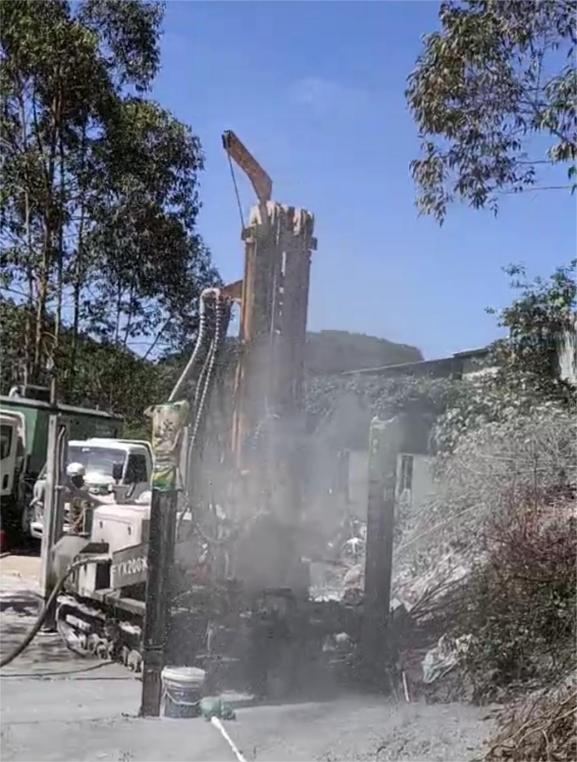1. Project Background
The western region of Botswana is located in an arid zone with low annual rainfall. Groundwater has become the main water source, but the traditional water extraction method is inefficient and difficult to meet the villagers' daily drinking water needs.
2. Project Objectives
The project aims to solve the drinking water safety problem of local villagers and improve their quality of life by introducing advanced water well drilling technology to quickly, safely and efficiently drill deep groundwater wells.
3.Technical selection
FY200 WATER DRILLING RIG is a mechanical equipment specifically designed for drilling operations, especially suitable for civil and geothermal drilling. The following is a detailed introduction to the device:
1. Product Features
Wide applicability: FY200 WATER DRILLING RIG is suitable for various drilling scenarios, such as civil drilling and geothermal drilling, with advantages such as large drilling diameter, deep drilling, fast footage, and flexibility.
Advanced technology: This equipment may be equipped with advanced drilling techniques and systems, such as turbocharged engines, hydraulic systems, etc., to ensure efficient and stable drilling operations.
Reasonable structural design: The equipment may use a professional excavator chassis, which is sturdy and durable in structure, and uses rubber tracks with minimal damage to hard road surfaces.
Easy to operate: The device design may focus on humanization, making it easy for operators to get started and operate, and improving work efficiency.
|
Model |
FY200 |
|
Weight: |
5.5ton |
|
The hole diameter: |
140-305mm |
|
Drilling depth : |
200m |
|
Air consumption : |
17-35m3/min |
|
Working pressure : |
17-30 bar |
|
Drilling direction : |
50°-70° |
|
Walking speed |
2.5km/h |
|
Climbing angles |
30° |
|
Equipped capacitor |
42-65KW |
|
Rig lifting force |
8Ton |
|
Swing speed |
50-70rpm |
|
Swing torque |
4000-5000(N.m) |
|
One time advanced |
3.4m |
|
Drill pipe diameter |
76mm |
|
Drill pipe length |
3m |
4. Implementation process
1. Preliminary preparation
Includes geological exploration, site selection and positioning, equipment transportation, personnel training and other preparatory work.
2. Drilling operation
Detailed description of the key steps in the drilling process, such as assembly of drilling tools, start-up test drilling, adjustment of drilling parameters, sampling and analysis of strata, etc., as well as measures taken when encountering different geological layers (such as rock layers and sand layers).
3. Quality control and safety management
Emphasize quality control measures during construction, such as regular testing of drilling depth, water quality testing, etc., as well as the implementation of safety management systems to ensure personnel safety and project quality.
5. Key Challenges and Solutions
1. Complex and Changeable Geology
Describe the geological problems encountered during the drilling process, such as hard rock layers that are difficult to penetrate and large fluctuations in groundwater levels, and explain the targeted solutions taken.
2. Equipment Maintenance and Troubleshooting
Share the failures that occurred during the use of the equipment and the rapid response mechanism, and how to ensure the efficient and stable operation of the equipment.
6. Results Display
1. Drilling Results
Show key data such as well depth, water output, and water quality test reports after successful drilling to prove the effectiveness of the project.
2. Social Benefits
Describe the positive impact of the project on improving the drinking water conditions of local villagers, improving their quality of life, and promoting economic development.

